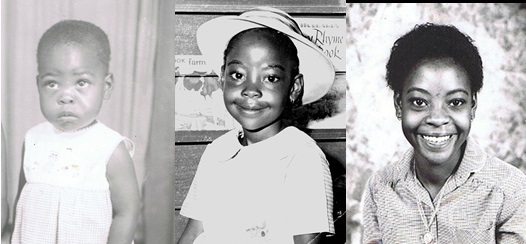In February this year I travelled from New Zealand, which is now my home, to the U.S. to speak in schools and colleges during February's Black History Month, and a few of the students asked me where I was from. It got me thinking about my ancestry and I realized that, although I am a citizen of Zimbabwe, my heritage is actually a cocktail of three nations: Zimbabwe, Malawi and Mozambique. I started to think about how I could trace back my history and find out exactly where my ancestors come from, and my research led me to www.Ancestry.com. It is the world's largest online family history resource, and on their website they had Black History Month tips for searching family roots. I had an opportunity to contact them and try to see if they could help me.
I never got to meet my paternal grandparents; my father's mother died before I was born. She came from Murewa, Mashonaland district of Zimbabwe, and the only link we had to her family were her sisters, who are now all deceased. My parental grandfather was from Malawi, and he died before I was born, too. The only link I have to that side of my family is my father's half-brother. We have no written documentation about my paternal grandfather and, in fact, very little about my grandmother, either, and it would be very difficult to try and track my paternal heritage. We have no photographs, birth or death certificates to help us trace my roots.

Getrude Matshe aged two, six and 13 years old
I was very lucky to have lived with both my maternal grandparents in my infancy. My maternal grandfather worked as a janitor at Mount St Mary's mission, a Roman Catholic mission in Wedza, on the Eastern Highlands on the border of Zimbabwe and Mozambique. I don't remember a lot about him, except that he was a very moody and grumpy old man. His name was Julius Mushaike, and he was so grumpy and argumentative that all his friends nicknamed him Bopoto, a word derived from Kupopota which means "to argue." He loved to argue about everything, even if he was wrong, so my grandparents' surname was changed from Mushaike to Bopoto. So even trying to search on names is going to be a big problem.
I have often wondered if he was originally from Mozambique but, again, we will never know because most of the elders who would have the history or the knowledge have died. Nothing was documented.
Have you ever wondered where you come from? A lot of people of African descent are scattered around the world, and especially in the U.S., because of slavery. There is good news, though. After speaking to genealogist Dr Joseph Shumway Black from Ancestry.com, I discovered that just a small amount of my saliva could be used to trace back my ancestors and to pinpoint the exact location of where my lineage started. And I am excited to see what my tests will reveal.
Why don't you try to find out, too, and let me know how it goes. My grandmother used to say that a tree with no roots gets blown over by the wind, and that our roots ground us to our past; it gives us a starting point to call home and allows the family tree to grow with every branch stretching out to create new families that can all be traced back to the roots.
So go onto their website, try it out and get excited because all roots do lead to Africa. She is the cradle of Humanity, and knowing where we are from gives us strength, and it gives us a legacy to hand down to our children and grandchildren.
I started to think about my future grandchildren and their children and whether they would ever be curious enough to want to know about their grandmother who left Africa in 2001 to settle in New Zealand. What would our family tree look like in 100 years' time, and would my dependents get access to the photographs and books that tell my story?
For more by Getrude Matshe, click here and follow Getrude Matshe on Facebook: http://www.facebook.com/gmatshe
